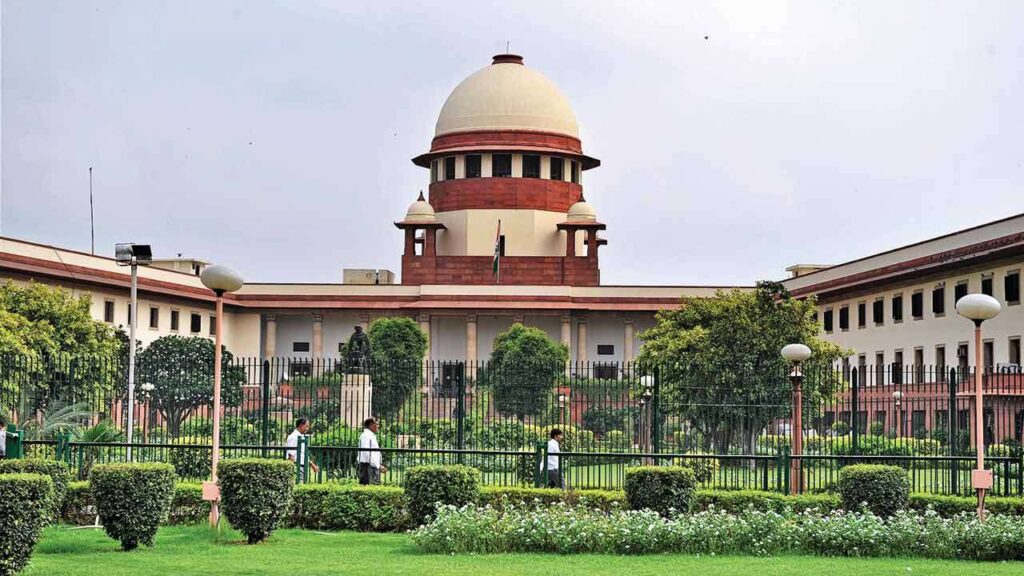Rakia Imran
On 10th January, the Supreme Court restricted puja and other miscellaneous activities at a well located near the much controversial Shahi Jama Masjid in Sambhal.
A Division-Bench comprising Chief Justice of India (CJI) Sanjiv Kumar and Justice PV Sanjay Kumar put a hold on the enforcement of a notice issued by Sambhal authorities regarding the well and also directed the authorities to file a status report regarding the same.
Earlier, the Court was hearing a case filed by the Committee of Management Shahi Jama Masjid Sambhal contesting a Civil Court order ruling for survey of the mosque.
The Court ordered that the notice be returned by February 21. In the meanwhile, the court ordered a status report to be filed by respondents in two weeks and ordered the respondents to not give effect to any notice in relation to the well.
The direction was issued by the Civil Court in response to a suit filed by Advocate Hari Shankar Jain and seven others who claimed that the mosque was constructed over a demolished temple during the Mughal era.
Whereas, in November 2024, incidents of violence took place, resulting in the top Court calling upon the authorities to maintain peace and harmony. In its latest application further into the case, the mosque committee informed the Court that the Sambhal District administration, in its aim towards a so called revival of old temples and wells, was giving publicity to the proposed public access being granted to the use of the well located near the mosque.
The notice was regarding the projection of the mosque as a temple, it was also asserted that posters had also been put up around Sambhal and near the mosque, indicating the location of the historical wells and therefore, the mosque had been implied as a temple. The posters also had the signs that they had been installed by Nagar Palika Parishad, Sambhal.
On this, the committee further alleged that the well situated at the entrance of the mosque and partly inside it, can not be opened for use by Hindus. It respectively, sought a compliance to not tamper the status quo with regard to the well.
In a much heated argument between Senior Advocate Huzefa Ahmadi, representing the mosque committee, and the Court, an interim order was issued with regard to the well and it was directed that the notice issued by Sambhal administration shall not be given effect to, after it was reported that a few were calling the mosque Hari Mandir and also asserting a puja to be held. The issue has also grabbed the attention of Apex Court, which will be keeping a close watch to maintain the peace and harmony.
Moreover, the Court also asserted that the well seemed to be situated outside the mosque when looked upon Google map, to which Ahmadi countered by speculating the fear of the well to be dug in future. The CJI reaffirmed that the Court won’t pass orders to do the same before proceeding to pass orders not to give effect to the notice.
In previous cases relevant to the Places of Worship (Special Provisions) Act, 1991, the Apex Court in December 2024 ruled an order to the Trial Courts across the country to not pass any effective orders against existing religious structures in suits filed challenging the religious character of such places.
Case Title: Committee of Management Shahi Jama Masjid Sambhal v. Hari Shankar Jain and Ors.
Case Number: Civil Suit No. 166/2024
Bench: Chief Justice of India (CJI) Sanjiv Kumar and Justice PV Sanjay Kumar

